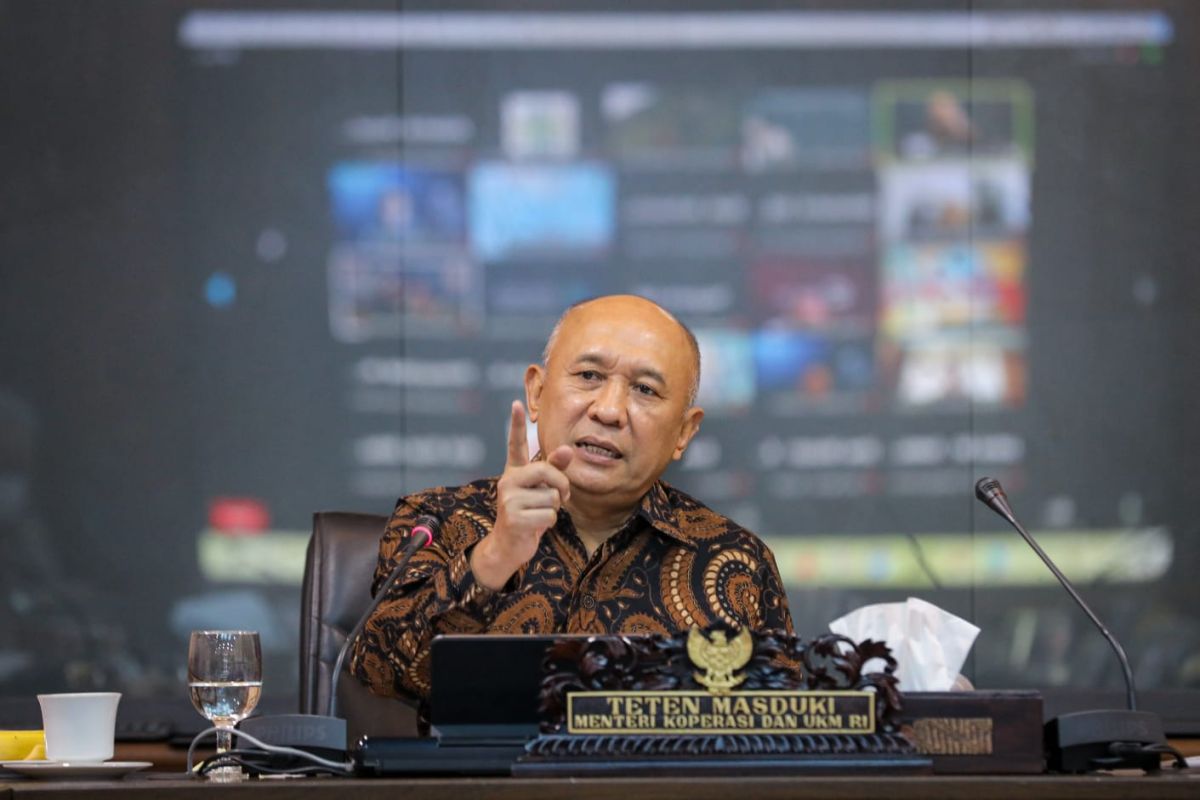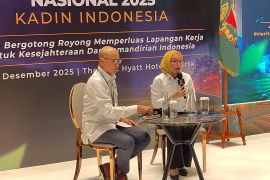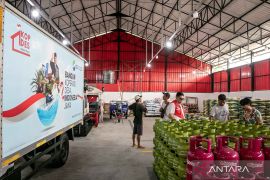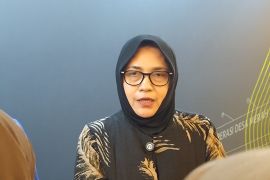The advantage of using a multi-stakeholder cooperative is its ability to aggregate various resources to improve the industry's performance.Jakarta (ANTARA) - Cooperatives and Small and Medium Enterprises (SMEs) Minister Teten Masduki believes that the multi-stakeholder cooperative model is suitable for developing digital start-ups and as a new alternative scheme for millennials to build their business.
The statement is related to the Regulation of Cooperatives and SMEs Minister Number 8 of 2021 regarding Cooperatives with a Multi-Stakeholder Model that was ratified on October 21, 2021, and will take effect from April 2022.
"The regulation will create a milestone for a new cooperative model in Indonesia," the minister remarked in a press statement here on Tuesday.
Masduki noted that currently, the business model trend was veering towards a sharing economy that aggregates the actors of all value chains in a particular industry.
Related news: Masduki highlights Cooperatives Ministry's achievements in 2021
Hence, issuing the regulation of a new cooperative model was the government’s response to the new trend.
Masduki stated that the regulation will become a solution to the growing needs of the business sector through the establishment of multi-stakeholder cooperatives.
"The multi-stakeholder cooperatives can be developed by various new business models," he noted.
Meanwhile, Deputy for Cooperatives at the ministry Ahmad Zabadi remarked that the new cooperatives model aims to improve the business volume and sustainability for all involved parties.
For instance, all players in the coffee industry, comprising the farmers, collectors, roasters, entrepreneurs, and investors, can collaborate into one cooperative.
Related news: Minister encourages birdcage artisans to register for NIB
"The advantage of using a multi-stakeholder cooperative is its ability to aggregate various resources to improve the industry's performance," the deputy remarked.
Zabadi noted that the business model cannot be implemented by conventional cooperatives that have uniform members since most of the modern businesses need to be managed together by suppliers, producers, marketers, and other business players having their own expertise and market access.
Furthermore, the new cooperative model can be practiced in various business sectors, such as services, production, consumption, logistics, digital, agriculture, and social, he remarked.
Thus, the model is very flexible and open to the development of various innovations required by the involved stakeholders.
Related news: Single data information system boosts MSME cooperatives' market: KSP
Related news: Uno calls for Formula E pre-events involving MSMEs
Translator: Baqir Alatas, Uyu Liman
Editor: Fardah Assegaf
Copyright © ANTARA 2022












